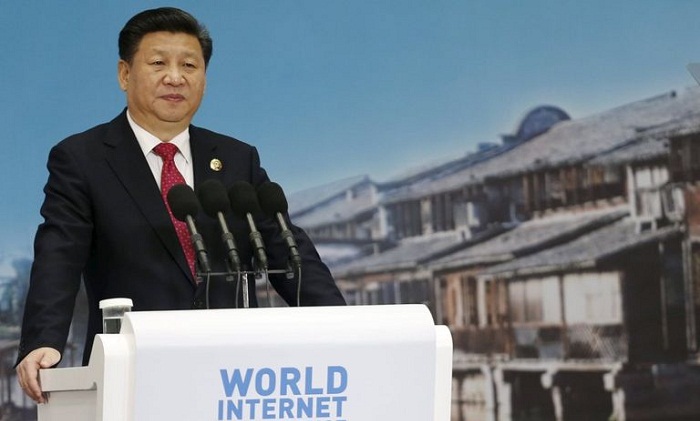China`s President calls for `cyber sovereignty` at internet conference

He was speaking at the Beijing sponsored World Internet Conference held in Zhejiang province.
China has been criticised for its strict internet regulations where it blocks major sites and censors posts.
The BBC`s John Sudworth, who is at the conference, says the keynote speech by President Xi is a clear sign that internet security and control have been elevated to national priorities.
His message is that China, with 650 million internet users, should have a say in drawing up the global rules and that they should include the right to decide what to censor and block, our correspondent adds.
Reporters Without Borders has been urging foreign companies and governments to stay away from the conference because their attendance, it says, makes them complicit in a censorship regime in which almost 40 journalists are currently in prison for work posted online.
The event, which is in its second year, is being attended by leaders from Russia, Pakistan, Kazakhstan, Kyrgyzstan and Tajikistan, and representatives from technology groups.
Our correspondent says last year`s event ended in farce when the organisers attempted to push a "joint statement" under delegates hotel doors, asking them to sign up to China`s notion of its right to "national cyber sovereignty".
On Wednesday, Mr Xi also reiterated a call for countries to work together on internet security.
He said no country should pursue "cyber hegemony" or engage in activities that undermine others` national security, in remarks reported by state news agency Xinhua.
China has clashed with the US over hacking allegations, with both sides accusing each other of infiltrating networks to steal commercial and government information.
He advocated a global governance system to "curb the abuse of information technology, oppose network surveillance and hacking, and fight against a cyberspace arms race".
"There should be no unilateralism. Decisions should not be made with one party calling the shots or only a few parties discussing among themselves," he added.















































